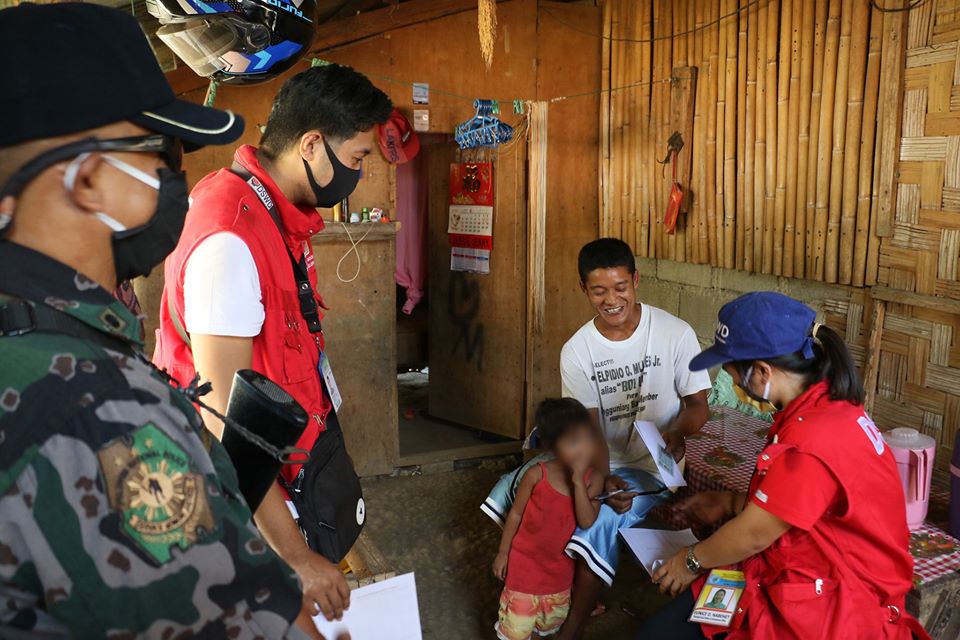The Department of Social Welfare and Development (DSWD), through its various Field Offices nationwide, in partnership with the local government units (LGUs), has started distributing on April 8 the emergency subsidy under the Bayanihan Fund: Tulong Laban sa COVID-19 to eligible families in their respective areas of jurisdiction.
In the Ilocos Region, staff of DSWD-Field Office I, assisted by the Philippine National Police (PNP) and personnel from the LGU, distributed through house to house, the cash aid of P5,500 each to 238 families from four barangays in Santa, Ilocos Sur, and to 298 beneficiaries from three villages in Santol, La Union. A total of 999,531 families from the whole of Region I have been identified as qualified recipients for the SAP.
On the other hand, in Central Luzon, DSWD-Field Office III distributed the P6,500 cash aid to some 3,750 qualified families from Pandi, San Rafael, and Baliuag in Bulacan. A total of P24,375,000 was distributed during this initial roll out of SAP in the province.
Likewise, DSWD-Field Office IV-A distributed the cash assistance of P6,500 to more than 1,000 qualified beneficiaries from Bacoor City, Cavite. Some, 80,477 families from the city are qualified
recipients of the SAP with their total subsidy totalling to P523,100,500. The distribution in this city will be completed until April 11.
Meanwhile, DSWD-Field Office IV-B has also started distributing the P5,000 cash assistance to families in Baco, Oriental Mindoro. A total of 233,443 families in the region are entitled to the cash aid with 116,754 coming from Oriental Mindoro.
The emergency assistance per region is based on the regional minimum wage rates.
To date, DSWD-Field Offices are coordinating with local government units (LGUs) for the schedule of distribution of the emergency subsidy to their qualified constituents.
DSWD continues to deliver the social amelioration assistance to low-income families or those on subsistence economy or workers in the informal economy, and with members belonging to the vulnerable sector, assessed to be the most affected by the declaration given their existing life situations or circumstances, while adhering to health and safety protocols. ###



